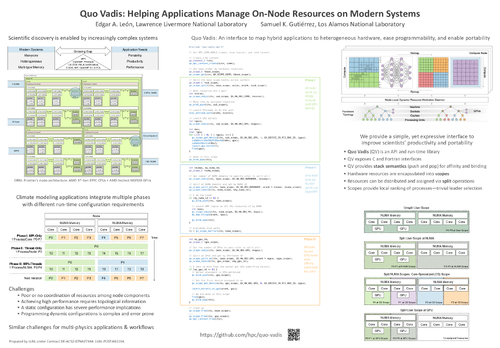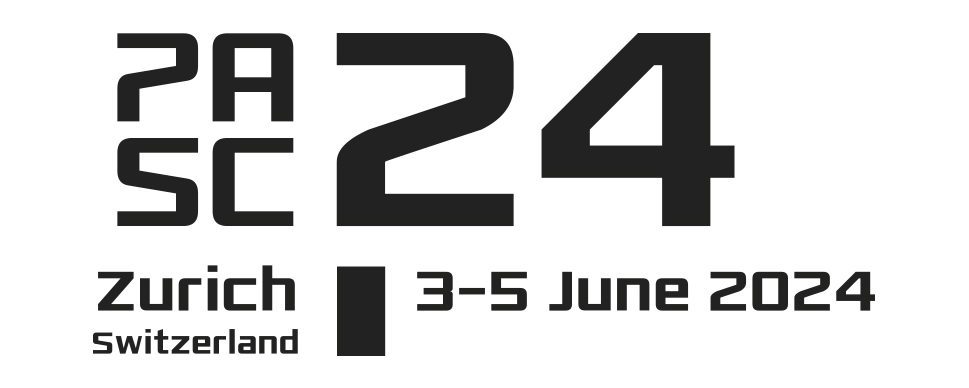Presentation

P43 - Quo Vadis: Helping Applications Manage On-Node Resources on Modern Systems
Presenters
DescriptionScientific discovery is increasingly enabled by heterogeneous
hardware that includes multiple processor types, deep memory
hierarchies, and heterogeneous memories. To effectively utilize this
hardware, computational scientists must compose their applications
using a combination of programming models, middleware, and runtime
systems. Since these systems are often designed in
isolation from each other, their concurrent execution often results in
resource contention and interference, which limits application
performance and scalability. This problem adds to the
already complex interactions between multiple physics libraries and
emerging machine learning components in scientific
applications. Consequently, real-world applications face numerous
challenges on heterogeneous machines.
This poster presents Quo Vadis, an interface and runtime system
that helps hybrid applications make efficient use of heterogeneous
hardware, ease programmability in the presence of multiple programming
abstractions, and enable portability across systems. The runtime
system abstracts out low-level details of the hardware and presents an
architecture-independent interface applications can use to leverage
local resources automatically and without user intervention. The
poster also includes a skeleton multi-physics application where we
applied Quo Vadis to demonstrate how the challenges described above
can be met in a portable way across systems and with a small effort
from application writers.
hardware that includes multiple processor types, deep memory
hierarchies, and heterogeneous memories. To effectively utilize this
hardware, computational scientists must compose their applications
using a combination of programming models, middleware, and runtime
systems. Since these systems are often designed in
isolation from each other, their concurrent execution often results in
resource contention and interference, which limits application
performance and scalability. This problem adds to the
already complex interactions between multiple physics libraries and
emerging machine learning components in scientific
applications. Consequently, real-world applications face numerous
challenges on heterogeneous machines.
This poster presents Quo Vadis, an interface and runtime system
that helps hybrid applications make efficient use of heterogeneous
hardware, ease programmability in the presence of multiple programming
abstractions, and enable portability across systems. The runtime
system abstracts out low-level details of the hardware and presents an
architecture-independent interface applications can use to leverage
local resources automatically and without user intervention. The
poster also includes a skeleton multi-physics application where we
applied Quo Vadis to demonstrate how the challenges described above
can be met in a portable way across systems and with a small effort
from application writers.
TimeTuesday, June 49:57 - 9:58 CEST
LocationHG F 30 Audi Max
Session Chair
Event Type
Poster



